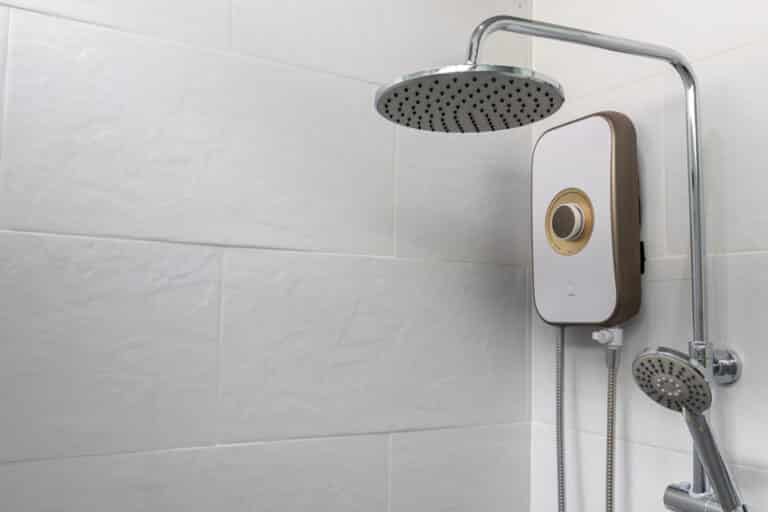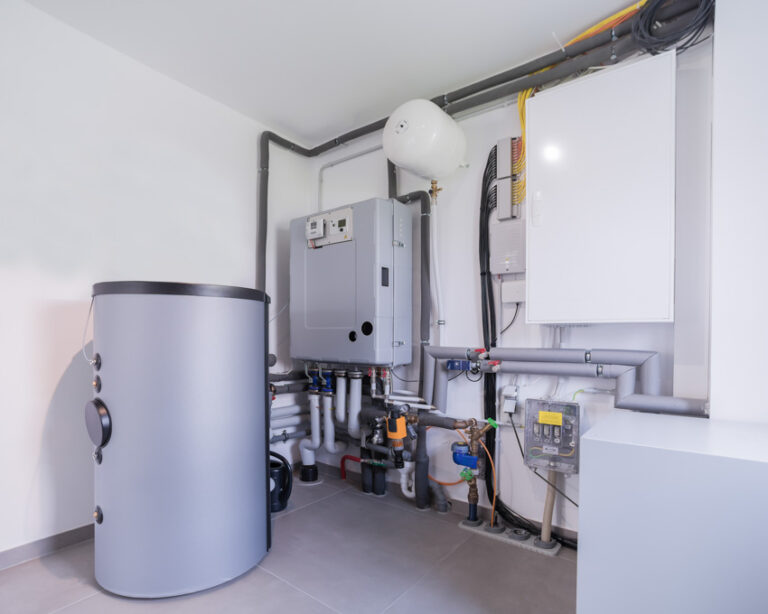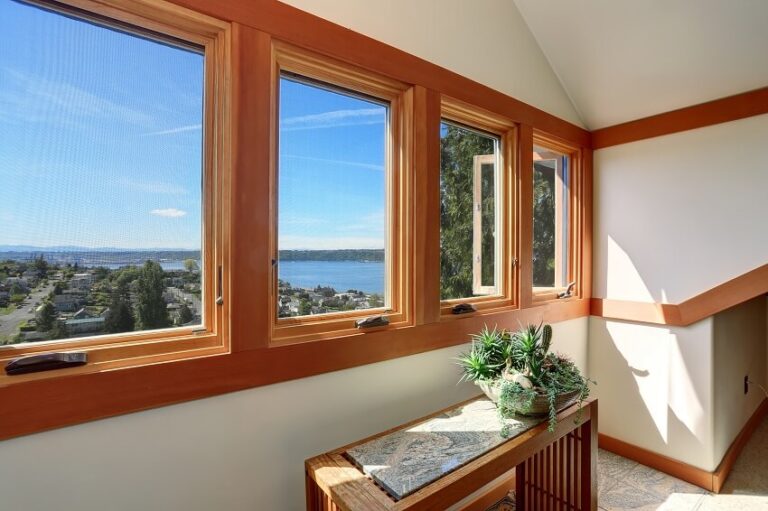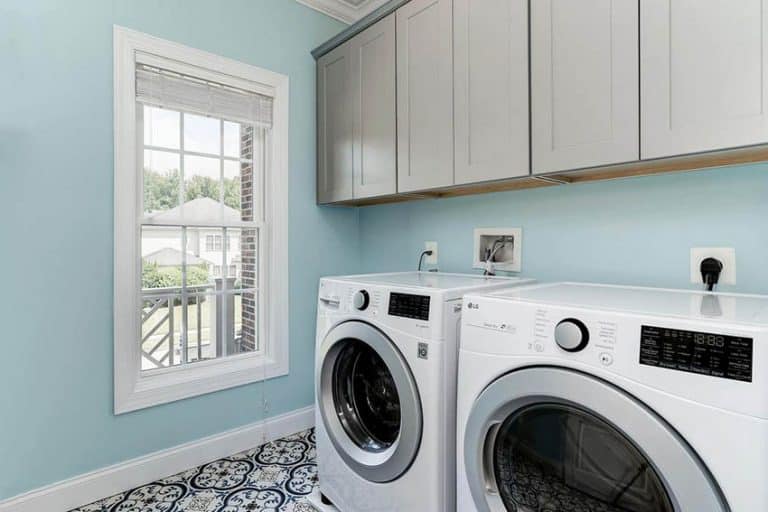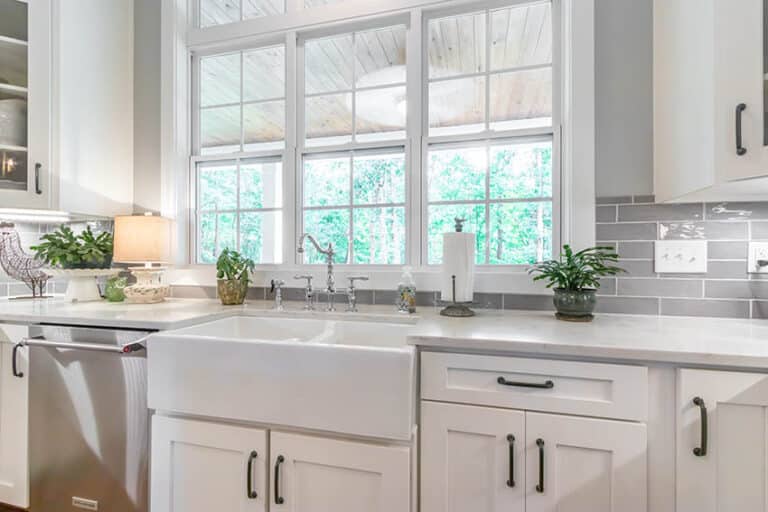Types Of Water Softeners
Here’s our guide to the different types of water softeners including salt-based, salt-free, well water, and other popular water softener options.
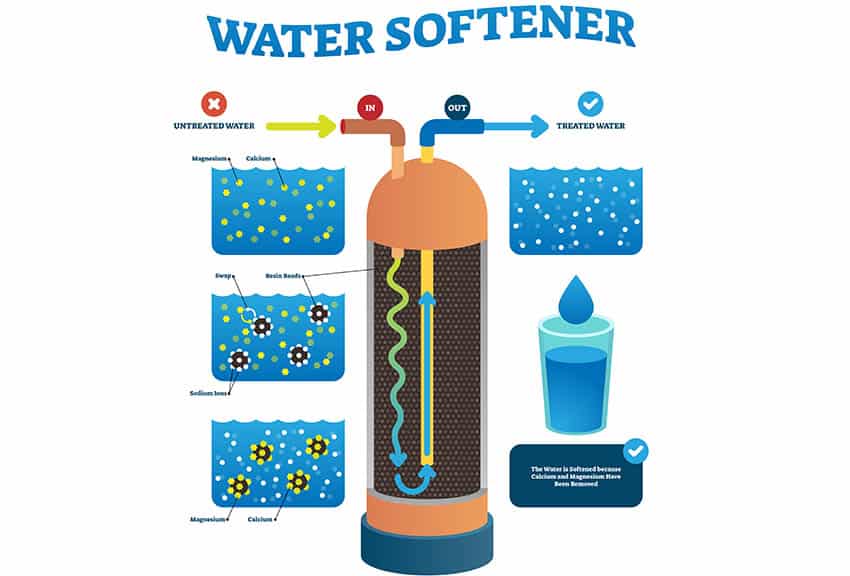 Did you know that the water delivered to our homes is full of hard minerals? Then came the water softeners.
Did you know that the water delivered to our homes is full of hard minerals? Then came the water softeners.
Basically, water softeners are essential since soft water has plenty of benefits over hard water.
There are several types of water softeners to choose from. Still, it’s worth noting that all systems are effective in reducing the mineral content in your water.
We’ve listed down the basics of each water softener, established their respective pros and cons, and presented various options and alternatives below to help you decide which would fit your needs and preferences best. [toc]
Salt-Based (Ion-Exchange) Softener
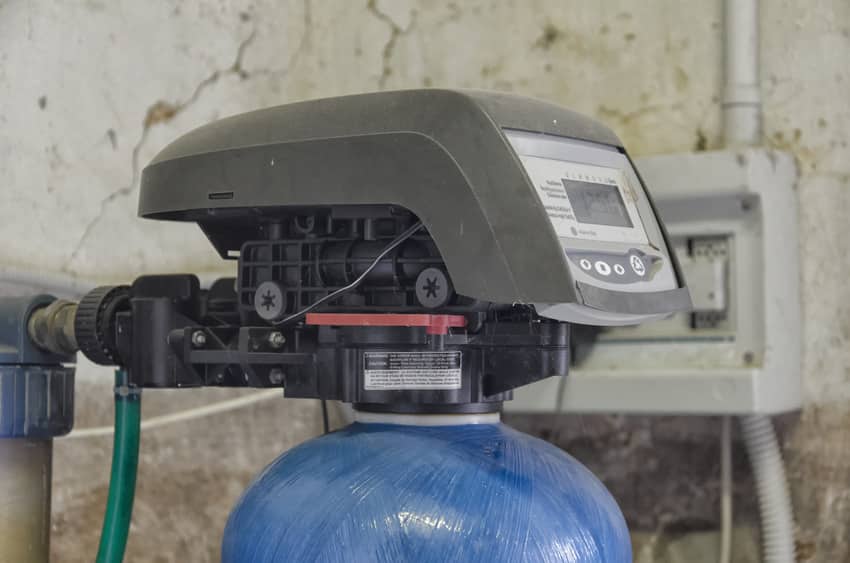
Total Installation Cost: $500 to $2,000
A salt-based water system is a traditional type of water softener which uses a process called ion exchange. This type of system works by cycling the water through two water tanks.
One of the tanks contains special resin beads while the other contains brine (salt water). It uses the positive charge of sodium ions or potassium ions to attract calcium and magnesium from hard water. It then replaces the hard minerals with sodium ions in the form of salt, then drains them out.
Ion exchange water softeners completely remove all hard water content from your water. However, take note that a salt-based softener won’t be able to remove chemicals or bacteria present in your water.
Regular maintenance is required as the water softener needs to be refilled with salt at least once a week. Once the resin depletes, you can regenerate it by pouring salt inside the brine tank.
The consistent upkeep of this type of water softener system entails a regular supply of salt which can add to your expenses. The resin tank, on the other hand, can last for several years before replacement is needed.
This water softener system can prolong the use of washing machines and dishwashers. However, it is not recommended for drinking water due to the high sodium levels.
Salt-Free Potassium Softener
Average Price Range: $500 to $3,000
Total Install Cost: $800 to $4,000
While the salt-based water systems deliver water with high sodium levels, the salt-free water softener systems offer healthy drinking water for anyone worried about sodium intake as it uses potassium-chloride salt as an alternative. Read more about our article on the pros and cons of salt-free water softeners here.
This type of system works in the same way as the ion-exchange water softener. The only difference is that it neutralizes the effect of hard water minerals instead of completely removing them, while retaining calcium and magnesium, preventing scale deposits from remaining on the surface.
Even though they do not eliminate hard minerals from the water, most salt-free systems feature a multi-stage filtration process that removes unwanted impurities from the water like bacteria and chemicals.
Salt-free systems don’t require regular maintenance either since they don’t have brine tanks and only use a filter.
Although this type of water system tends to be more expensive and is more costly to install, they are actually a great investment in the long run since you basically save up on annual salt expenses and weekly maintenance.
The only drawback to this type of water system is that it may not be completely effective in areas with very hard water.
Well Water System
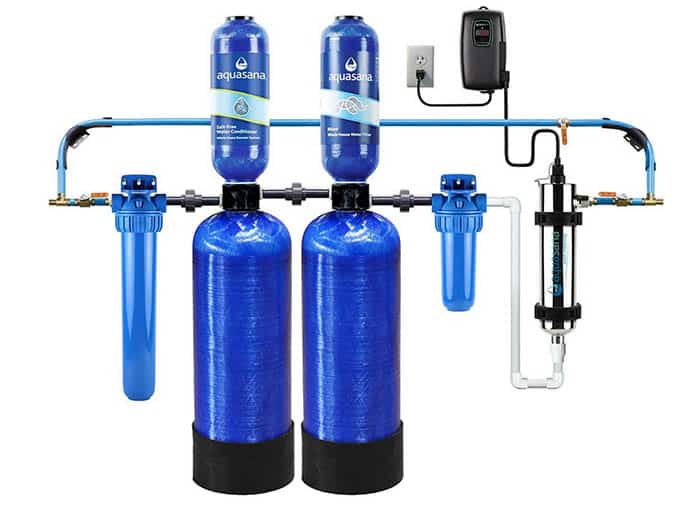
Average Price Range: $500 to $3,000
Total Install Cost: $800 to $4,000
The most common water issue when the water source is from a well is water hardness, which is essentially caused by naturally occurring dissolved minerals such as calcium, magnesium, iron, manganese, and a few more others.
So if you have no qualms with the extra responsibility of treating and disinfecting this type of water softener, then you should probably consider going for it.
Meanwhile, one of the best advantages of using a well water softener is its impressive ability to improve the taste of any food cooked with water.
Other benefits include reduction of scale build-up on sinks, tubs, showers, clothing, and glassware, as well as in pipes, water heaters, plumbing fixtures, dishwashers, and other water-related appliances.
Magnetic/Electronic Softener
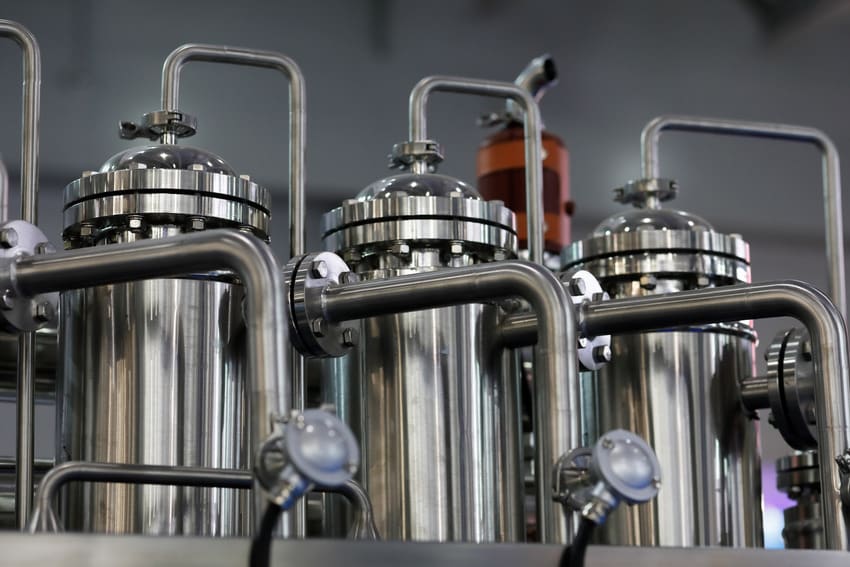
Total Install Cost: $200 to $600
Magnetic water softeners are one of the new types of water softeners on the market that are considered excellent alternatives to salt-free water softeners since like the latter, they also don’t remove hard minerals from the water.
Moreover, like salt-free systems, these magnetic water softeners use electricity to create a magnetic field that neutralizes hard minerals; thus, keeping them completely soluble without fully removing them.
However, one of the disadvantages of this process is that the water tends to revert to hard water within 48 hours after leaving the magnetic field.
Still, this type of system is quite affordable and is easy to install. But granted that they use electricity, it’s best to mind your usage to be spared from high utility expenses.
Water Distiller
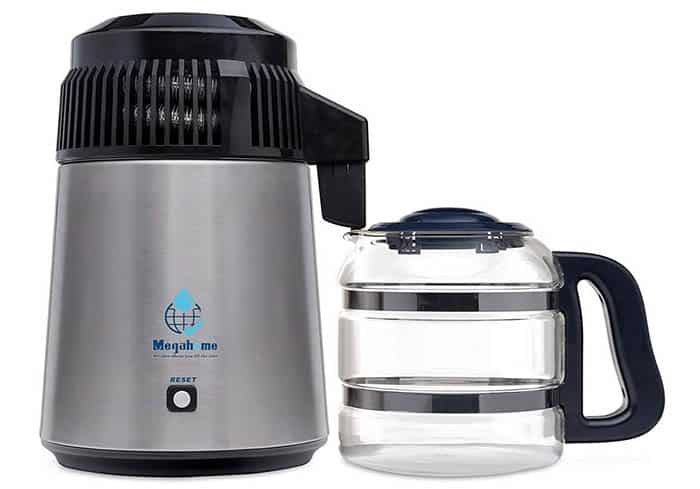
Average Price Range: $50 to $1,500
Total Install Cost: $50 to $2,000
A water distiller is a water treatment method that produces contaminant-free water by turning water into steam to remove impurities like bacteria, as well as heavy metals such as lead, fluoride, and arsenic, viruses, and a few more other contaminants.
Since these contaminants are unable to turn into steam, they are left behind in the boiling chamber and are neutralized during the boiling process. The water distiller then condenses the evaporated water, cools it, and then reverts it back to its liquid form.
Distilled water is completely free of all bacteria, viruses, and inorganic compounds, protecting your body from harmful water contaminants.
Unlike other water filtration systems, a water distiller involves little to no installation; the unit is merely plugged into an electrical source, with a need to fill the boiling chamber with water and let the distiller purify it.
There are also automatic units that need to be connected to a water source so they can provide purified water nonstop. In this case, a simple plumbing connection is necessary.
A well-maintained water distiller will typically last about 10 to 15 years. Not to mention, they can be a great investment since the carbon postfilter replacements are quite inexpensive as well.
Softener Options
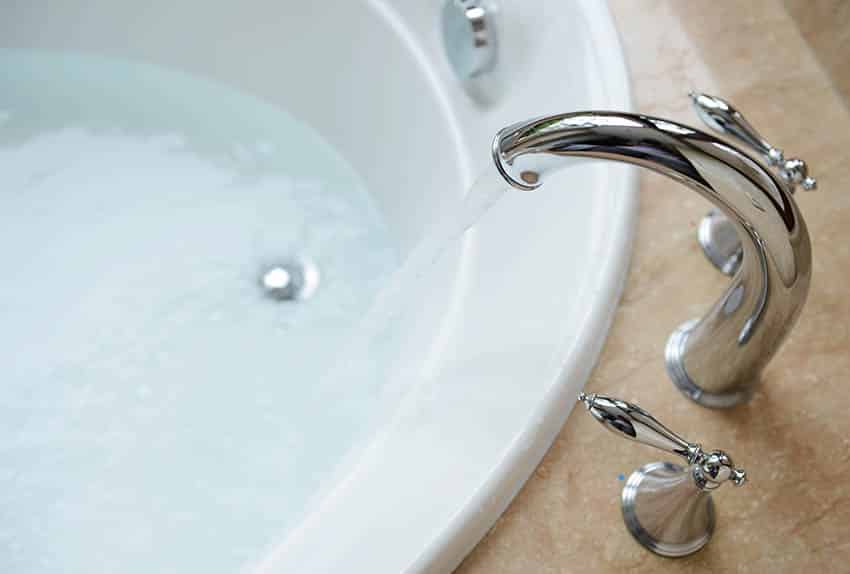
Template Assisted Crystallization
Best known as water conditioners, this is the most common and best alternative to water softeners especially if you are concerned about sodium in your water.
The main difference between water softeners and water conditioners is that the latter don’t essentially remove the minerals from hard water. Instead, they actually cause minerals in hard water to crystallize.
This is done through the template-assisted crystallization (TAC) method. Once the “seed crystals”, as they are sometimes called, have formed, the remaining mineral ions contained in the hard water will attach to the seed crystal rather than to any surfaces of the water.
This process allows the mineral to stay in the water but eliminates the ability of those minerals to cause mineral buildup in pipes, appliances, or on other surfaces.
Water conditioners are not powered by electricity, making for a much easier installation. They also don’t require the use of brine, saving you the costs and time to installing a drain line from the water conditioner.
Electromagnetic Water Unit
This water softener alternative uses a simple mechanism to purify the water without completely removing calcium from it. Unlike other water softener systems, the electromagnetic water treatment unit does not use brine or chemicals nor does it require frequent salt refills.
Essentially, this water system removes unpleasant odors and prevents any limescale buildups in your plumbing.
Reverse Osmosis System
Reverse Osmosis System can extract up to 99% of the dissolved minerals buildup, offering purified drinking water as a result. This water system can also remove impurities such as chloride, fluoride, and pathogens by trapping them into its multiple filters.
These filters, known as carbon and sediment filters, remove unpleasant tastes, smells, dirt, and chlorine from municipal tap water.
The reverse osmosis system does not use gas or electricity and is generally built for an under-sink installation focusing on a specific water point. It only requires a filter change every year, depending on the water condition in your area.
What Type Of Softener Do You Need?
Overall, there is a wide range of water softeners types and models available on the market today that you can choose from. So, it’s best to consider several key factors when evaluating each type of water system in order to find the best fit for your household.
To summarize, these factors include the level of water hardness and consumption in your household, as well as your budgetary and personal preferences based on the technical functionalities of the specific water softener systems.
Other factors may include the softening capacity, energy efficiency, iron removal, salt usage, and even contaminant filtration capabilities.
While everything that’s been leading up to this point may seem like a big chunk of technical information, if you have carefully taken into account all the factors mentioned previously, then you are more than ready to find your perfect water softening solution.
Enjoyed this article on the types of water softeners? Visit this pros and cons of water softeners page for more related content


